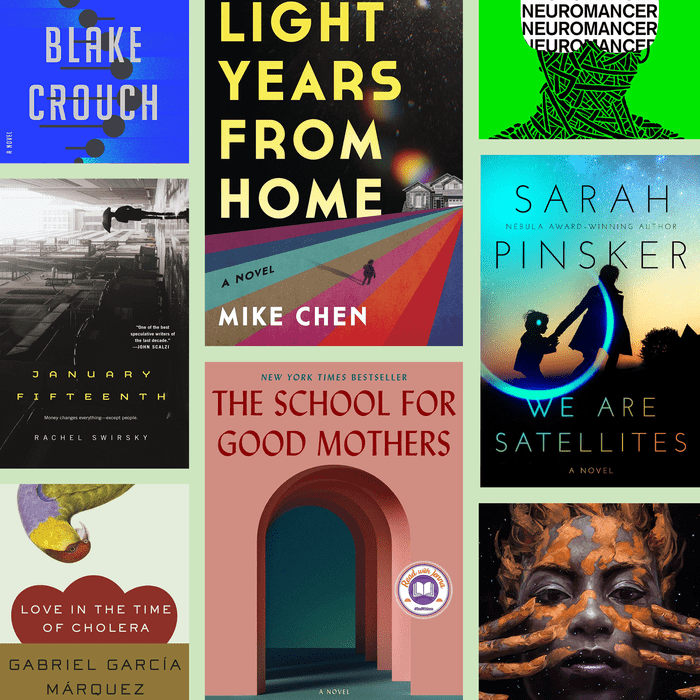
Out-of-this-world science fiction books
Science fiction explores both the most wondrous and darkest possibilities of our world. Tracing back to Mary Shelley’s 1818 Frankenstein, the genre has been entertaining readers young and old for more than 200 years. The best sci-fi books ask “what if” questions about our societies, species and existence as a whole. What if an element of today’s society became dangerously exaggerated? What if we had to defend our world against aliens? What if life as we know it isn’t really real?
While science fiction and fantasy books often overlap, sci-fi generally abides by scientific logic, whereas fantasy tends to include elements of magic instead. What some call hard science fiction has a focus on natural sciences like biology, chemistry and astrophysics, while soft science fiction emphasizes social sciences like psychology, politics and sociology. The best sci-fi books, however, blend innovative technological elements with subsequent social ramifications.
We’ve compiled 50 of the best sci-fi books everyone should read, including titles that have remained relevant through the years, books that have been lauded by critics and readers alike, series that have been turned into films and TV shows, and newer page-turners that have created buzz and landed on bestseller lists. Here, you’ll find some of the best books of all time, LGBTQ books, mysteries and classic works of fiction. And of course, no compilation of the best science fiction books would be complete without dystopian books and time travel books to blow your mind.
Join the free Reader’s Digest Book Club for great reads, monthly discussions, author Q&As and a community of book lovers.
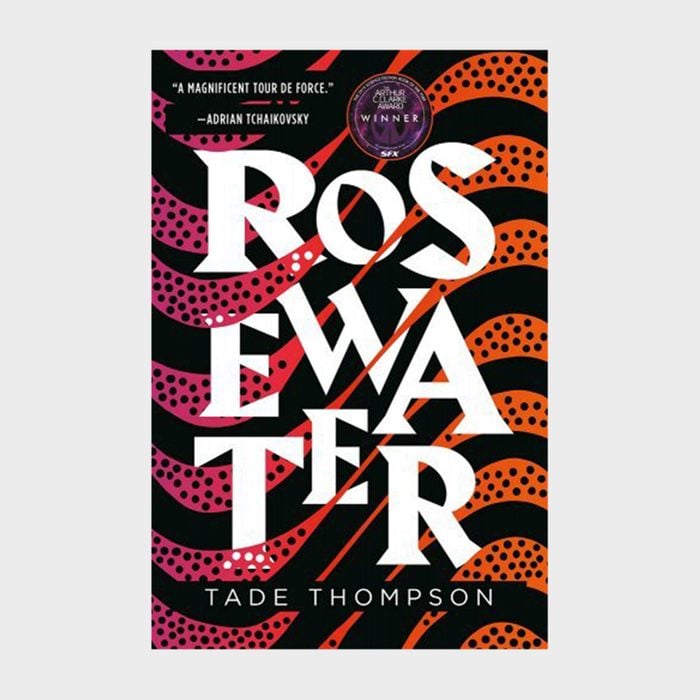
1. The Wormwood Trilogy by Tade Thompson
Begin your adventure in the Wormwood Trilogy universe with the first book, Rosewater, winner of the Arthur C. Clarke Award for Best Science Fiction Novel. Published in 2016 and set in 2066, this cyberpunk near-future imagining of Nigeria and the “xenosphere” bends minds and genres. An alien biodome said to have healing powers draws the unwell, who set up on its margins in a town called Rosewater. Kaaro, our narrator, has been recruited by the government for his telepathic powers, but soon others with these powers start to die of a mysterious sickness. Exploring alien contact, government conspiracies and a paranormal plane, this book will send you places you’ve never been. Good news if you enjoy Rosewater: The story continues with its sequels, The Rosewater Insurrection and The Rosewater Redemption. Be sure to check out our list of other books by Black authors.
Get Reader’s Digest’s Read Up newsletter for humor, cleaning, travel, tech and fun facts all week long.
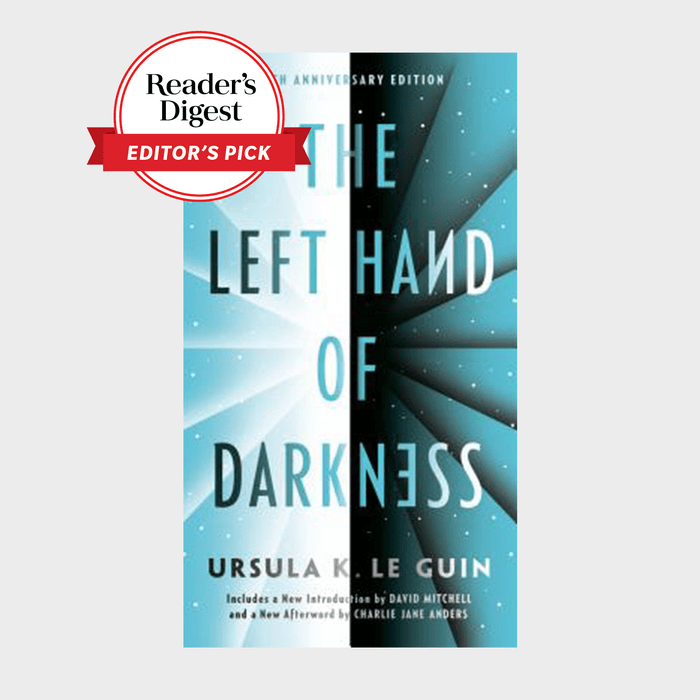
2. The Left Hand of Darkness by Ursula K. Le Guin
Ursula K. Le Guin was a prolific writer of both sci-fi and fantasy whose long list of accolades includes six Nebula Awards and seven Hugo Awards. Technically, her celebrated 1969 novel, The Left Hand of Darkness, is part of a series called the Hainish Cycle (sometimes called the Novels of Ekumen). While sharing a universe, each book in the series stands alone, so we’re spotlighting this standout story as one of the best sci-fi books ever written. For readers interested in anthropology, philosophy and societal inquiry, Le Guin writes with great depth on themes ahead of her time. Her skillful storytelling brings humanity to the forefront, and her exploration of a planet where gender is fluid challenged the gender norms of the 1960s and remains relevant to gender discussions today. Plus, in a genre saturated with male authors, it’s noteworthy that one of the greats is a female author. For more women authors, check out these feminist books.
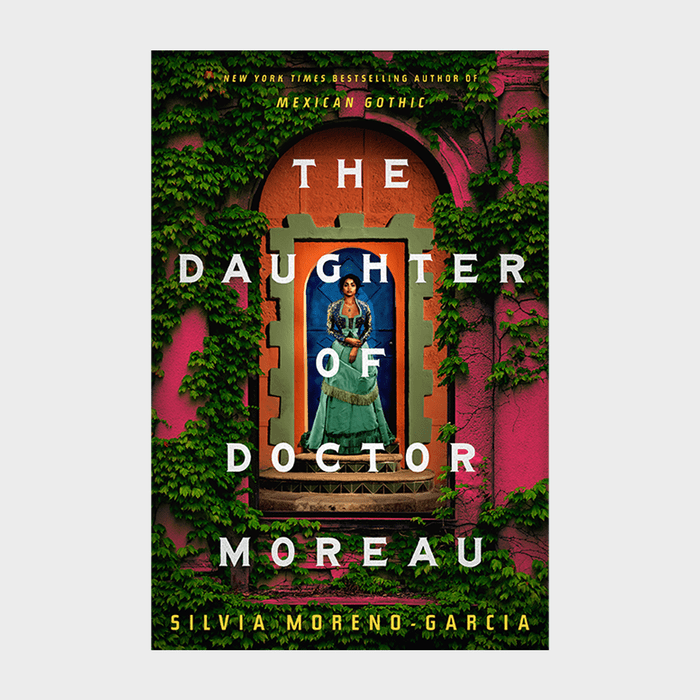
3. The Daughter of Doctor Moreau by Silvia Moreno-Garcia
Bestselling author Silvia Moreno-Garcia (you may have read her Mexican Gothic or Velvet Was the Night) brings Latina feminist magic to the literary world yet again, with this 2022 dreamy reimagining of H.G. Wells’s 1896 sci-fi horror classic The Island of Doctor Moreau. Transported to the lush jungles of 1871 Yucatán, readers still get Wells’s mad scientist and his animal-human hybrid experiments, this time from the perspective of his daughter, Carlota, who considers the creatures her family. And while there’s a passionate romance woven into the tale as well, the story also provides commentary on the real-life social inequity and strife present in Mexico at the time. Whether you’ve read the original or not, The Daughter of Doctor Moreau proves that the best sci-fi books can take classic tales to the next level. This is the perfect read for historical fiction lovers and anyone searching for more books by Latinx authors.
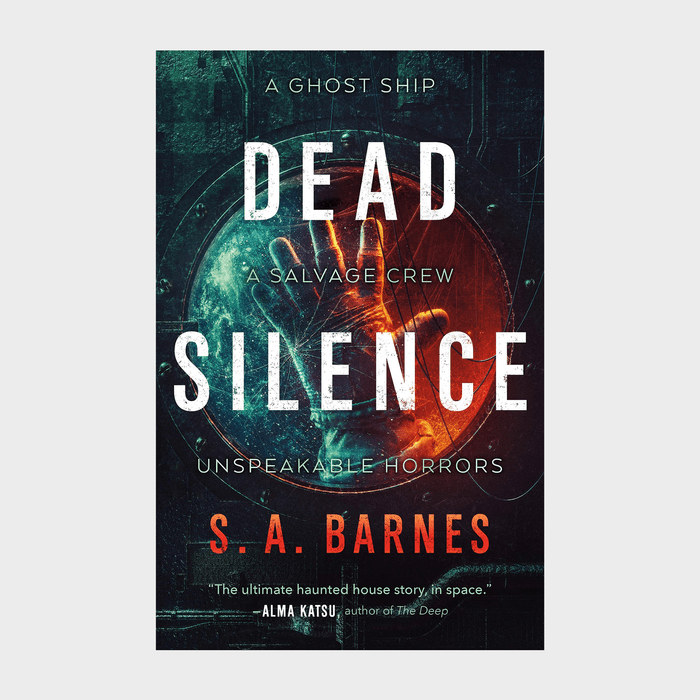
4. Dead Silence by S.A. Barnes
It doesn’t have to be spooky season to enjoy horror books! If you loved the film Event Horizon or the video game Dead Space, S.A. Barnes’s 2022 novel Dead Silence is a heart-pounding space horror-thriller that will keep you on the edge of your seat. A salvage crew led by Claire Kovalik responds to a distress signal and finds a luxury space liner that will set her crew up for life … but the ghost ship ends up being much more than she bargained for. What Barnes does incredibly well in this sci-fi book is remind readers how terrifying and expansive space truly is—a small miscalculation can cost you everything, and no one can hear you scream.
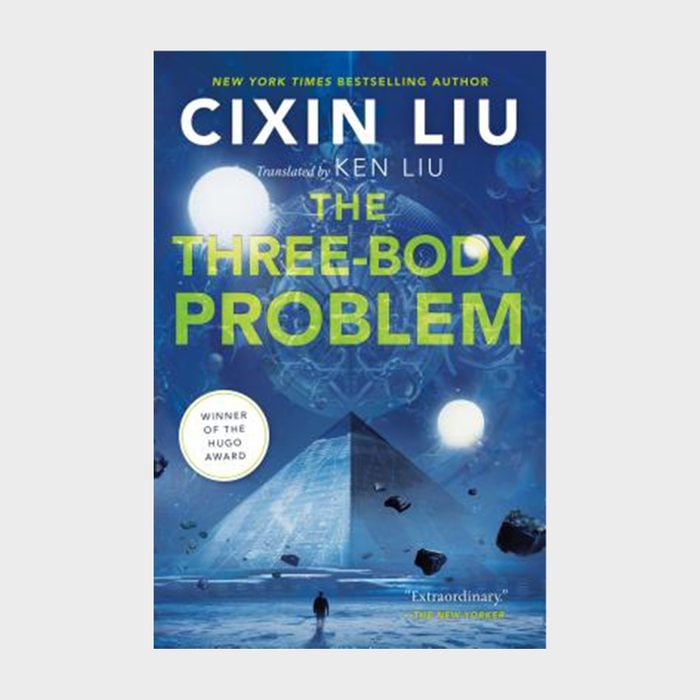
5. The Remembrance of Earth’s Past series by Cixin Liu
Whether you refer to it as The Three-Body Problem series or the Remembrance of Earth’s Past series, this is one of the best sci-fi book series out there. It begins with The Three-Body Problem, which won literary awards in China when it was published in 2008. In 2014, it was translated into English by Ken Liu and promptly won a Hugo Award, making Cixin Liu the first Asian author to win the prestigious Best Novel prize. The complex story weaves a tale of Chinese history, science and alien warfare. Set on earth at the brink of an invasion, the book portrays mankind fracturing in its different approaches to the impending danger. It’s currently being adapted for Netflix, but there’s no release date yet, so you still have time to read the books before binge-watching the show.
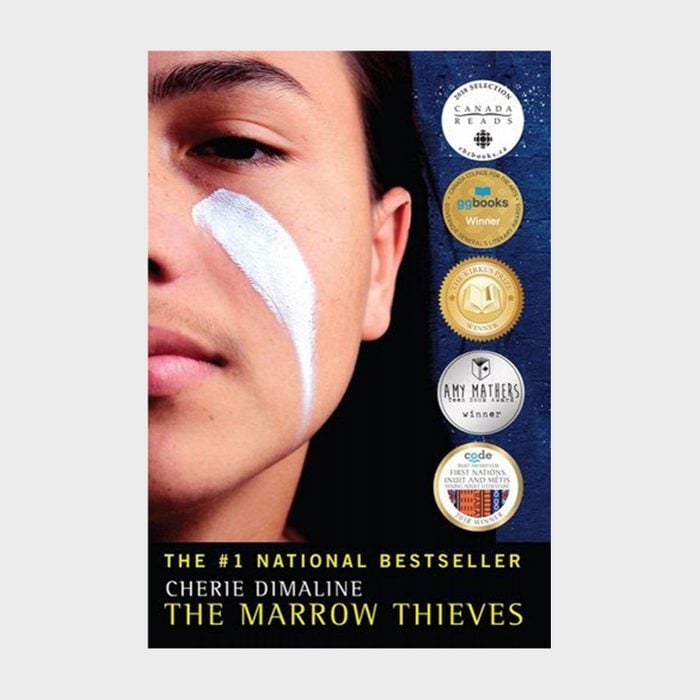
6. The Marrow Thieves series by Cherie Dimaline
Part of another book series that’s being adapted for television, The Marrow Thieves (2017) and Hunting by Stars (2021) explore a future in which the environment is in peril and natural occurrences we once took for granted are no longer possible. People have become unable to dream, with the exception of Indigenous North Americans, who hold the ability in their bone marrow. As dreamlessness leads to madness, “recruiters” will stop at nothing to forcefully take Indigenous peoples’ marrow. We follow a group of young friends navigating a world in which they are hunted, and with them, we ponder themes of displacement, ancestry and environmental ruin. Written by a member of the Metis Nation of Ontario, this is one Native American book you don’t want to miss.
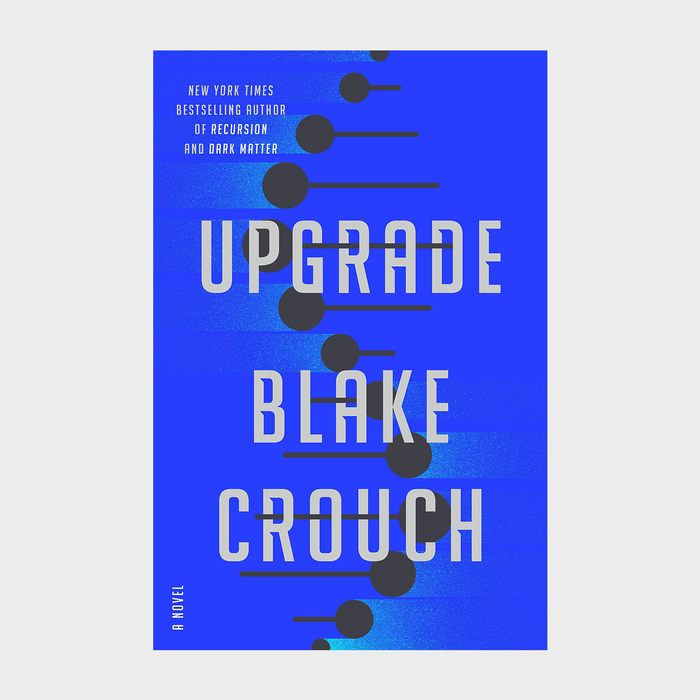
7. Upgrade by Blake Crouch
Blake Crouch’s sci-fi thrillers (including Dark Matter and Recursion) always keep readers on the edge of their seats while keeping close focus on compelling characters you actually care about. His latest is no exception: Upgrade was one of the most-anticipated books of the year. In this action-packed read, Jason Bourne–esque protagonist Logan Ramsay learns his genome has been hacked and he’s becoming stronger, faster and smarter. The same will happen to the rest of the world, but at a terrible, unethical cost, and Logan must race to stop it from happening. Sleek and fast-paced, Upgrade hints at the very plausible future of genetic engineering, where our very humanity is endangered.
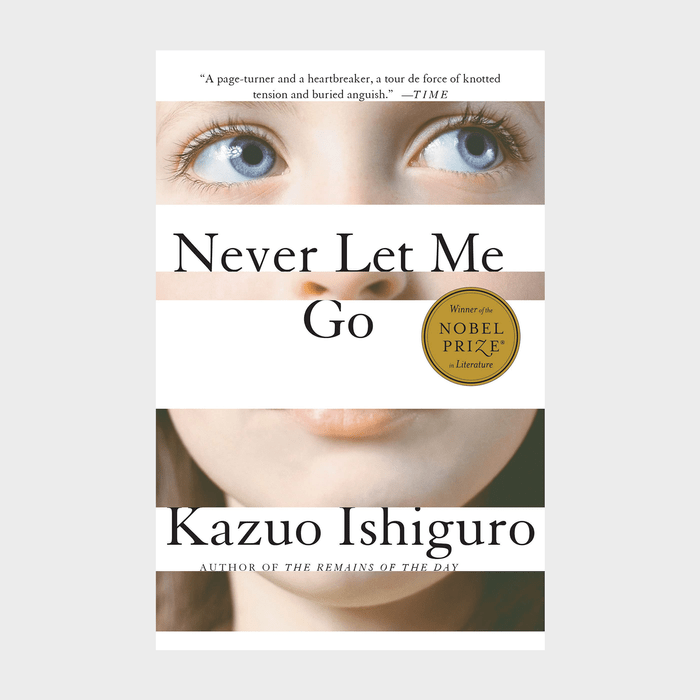
8. Never Let Me Go by Kazuo Ishiguro
What if you and your loved ones never had to get sick again? And how far would you be willing to go to make that happen? Kazuo Ishiguro’s Never Let Me Go (2005) is a heartbreaking, philosophical rumination on what it means to be human. In this dystopian alternate world where clones are farmed for organs, every moment is precious and poignant for the clones, who fight to prove their humanity. Shortlisted for the 2005 Booker Prize and winner of the 2006 Arthur C. Clarke Award, the book was adapted into a movie in 2010 starring Carey Mulligan, Keira Knightley and Andrew Garfield.
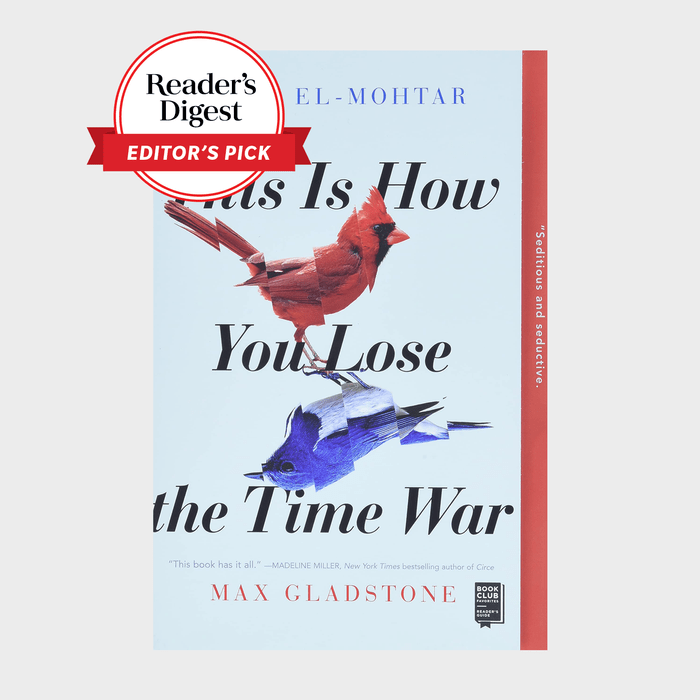
9. This Is How You Lose the Time War by Amal El-Mohtar and Max Gladstone
This extraordinarily beautiful epistolary novel follows Red and Blue, two post-human rival spies who travel through space and time to alter history so that their respective factions can win the eternal time war. In a story reminiscent of Killing Eve, the women try to outsmart each other, leaving secret messages as taunts—but somewhere along the way, they fall in love. Don’t confuse this for a romance novel, though; it’s firmly science fiction. Amal El-Mohtar and Max Gladstone write their respective perspectives in lyrical form, their exquisitely thought-provoking poetry elevating this to one of the best sci-fi books of all time. Winner of the Nebula Award for Best Novella in 2019 and the 2020 Hugo Award for Best Novella, This Is How You Lose the Time War will absolutely steal your breath away.
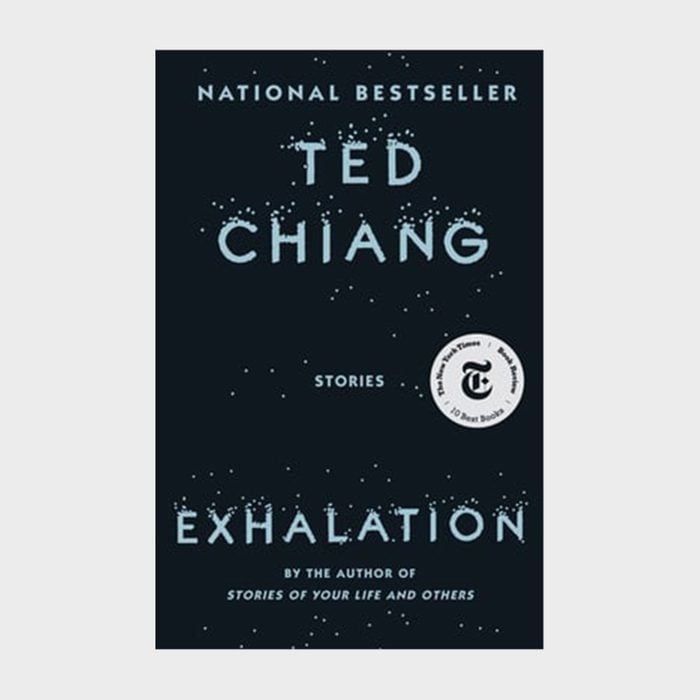
10. Exhalation by Ted Chiang
Ted Chiang is a celebrated writer known for packing tons of sci-fi brilliance into brief and beautiful stories. The Oscar-nominated film Arrival is based on a short story from his previous collection, Stories of Your Life and Others. The success of that first collection made Exhalation (2019) a national bestseller and a New York Times Best Book of the Year. The nine stories in this book explore futurism, free will and artificial intelligence, among many other nuanced themes. Rather than relying on thrill and flash, Chiang is a deep thinker who opens our minds with the worlds he creates.
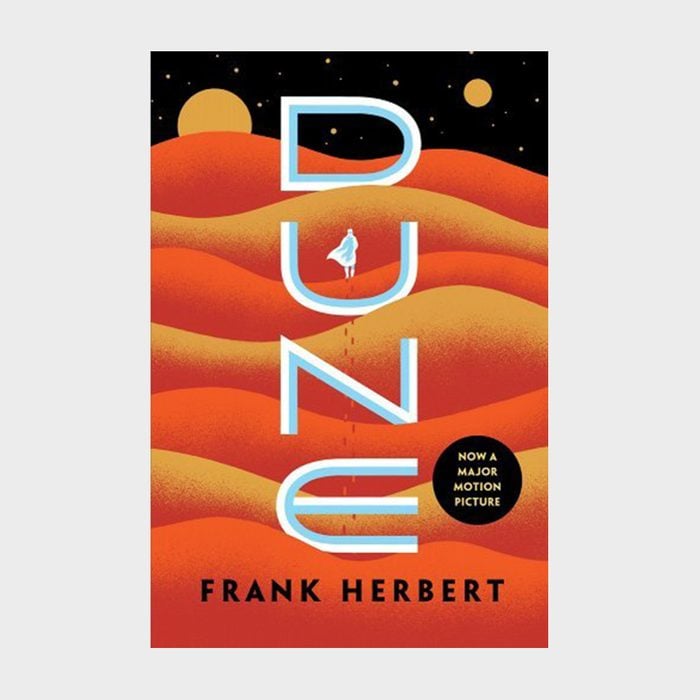
11. Dune by Frank Herbert
This 1965 classic is back in vogue, thanks to the 2021 Academy Award–winning sci-fi film adaptation starring Timothée Chalamet and Oscar Isaac. It never really fell out of favor, though, selling millions of copies since its first print run and winning the Hugo Award and Nebula Award. The story takes place in the year 10,191 on the planet Dune, the most valuable planet in Herbert’s lushly imaginative universe. Lauded as the precursor to George Lucas’s Star Wars, Dune includes the stuff of sci-fi and fantasy magic: heart-pounding action, an iconic fictional world and a main character who is very human in an inhuman universe. Read closely, and you’ll probably spot some similarities between the worlds of Dune and Star Wars.
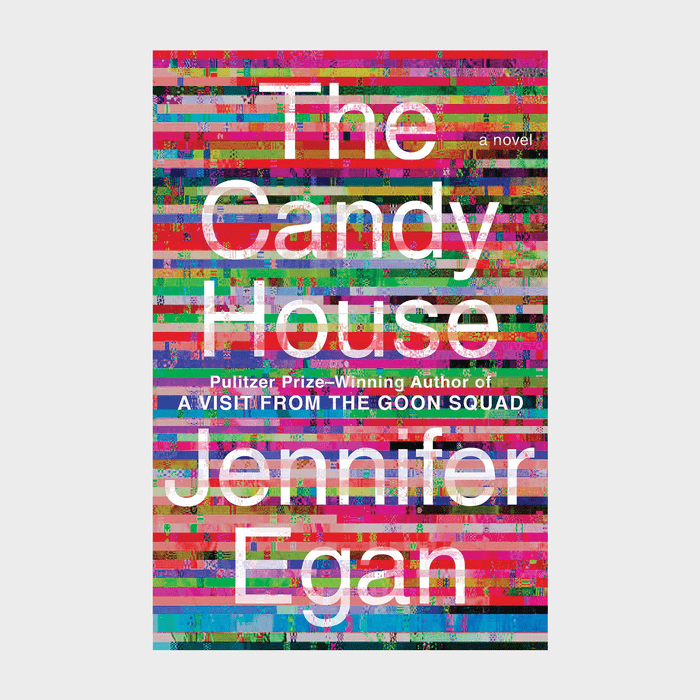
12. The Candy House by Jennifer Egan
Written by the Pulitzer Prize–winning author of A Visit from the Goon Squad, The Candy House is a dazzling and brilliant 2022 stand-alone novel set in the same world. It imagines the next iteration of social media: a revolutionary technology that externalizes consciousness into a cube and allows you to access and share your memories. While it can address dementia and amnesia, help solve crimes and even help you find where you left your keys, what results is a shared consciousness where everyone can access one another’s memories—whether they consent or not. Author Jennifer Egan explores the ramifications of this technology on different people’s lives. Each narrator has their own distinct voice, which keeps The Candy House engaging and unique.
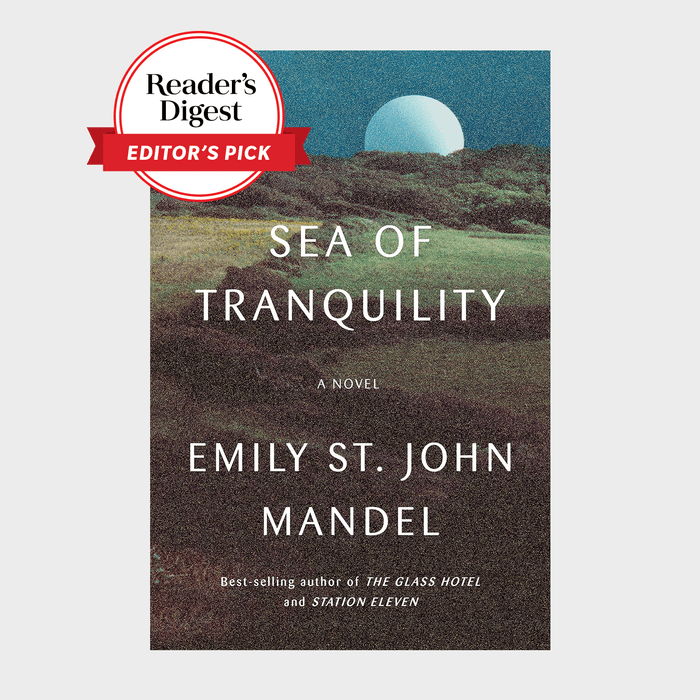
13. Sea of Tranquility by Emily St. John Mandel
From the bestselling author of The Glass Hotel and Station Eleven comes Sea of Tranquility, an epic that spans centuries, civilizations and worlds. If Station Eleven was Emily St. John Mandel’s pandemic novel—one that captured the hearts of millions of readers and, later, viewers with its 2021 HBO Max television adaptation—Sea of Tranquility is the 2022 answer to it, deconstructing the concept of time, death and reality altogether. The story weaves together the lives of a teenage exile in the Canadian wilderness in 1912, a writer from a moon colony on a book tour on earth in 2203 and a detective in Night City in 2401, piecing it all together. Through serene passages and poignant, beautiful prose, the novel explores simulation theory, time travel and the human condition. If you’re a fan of David Mitchell’s Cloud Atlas, Sea of Tranquility is the perfect sci-fi book for you.
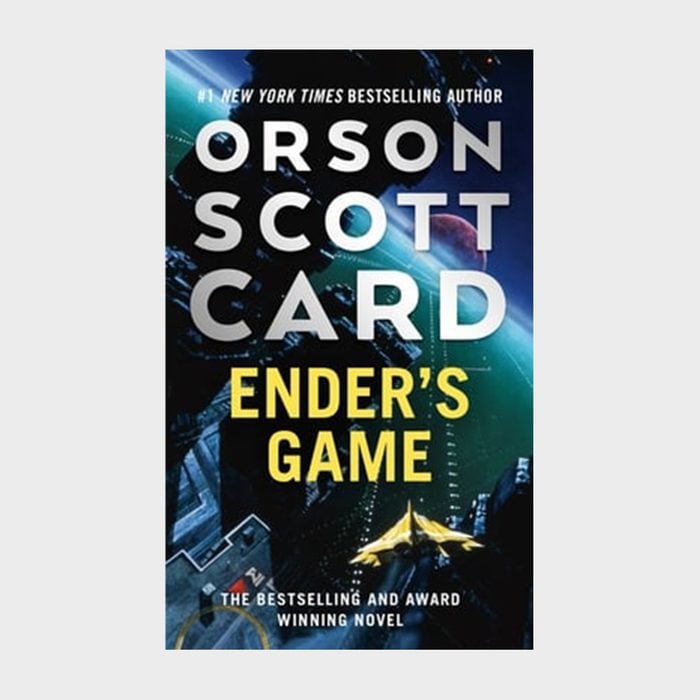
14. The Ender Saga by Orson Scott Card
In 1985, Orson Scott Card’s Ender’s Game opened a new world to science fiction fans: the world of his young hero’s genius mind. It’s a high-stakes, militaristic twist on sci-fi and one welcomed by those who enjoy reading historical fiction and novels about war. Ender’s Game won both a Hugo and Nebula award and was followed by Speaker for the Dead, Xenocide, Children of the Mind and, in 2008, Ender in Exile.
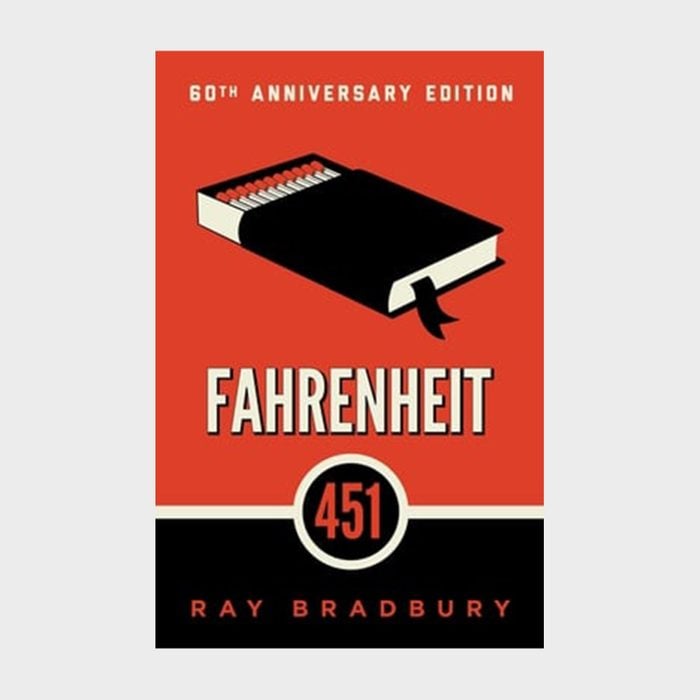
15. Fahrenheit 451 by Ray Bradbury
Ray Bradbury never set out to be one of the best science fiction authors of all time. He categorized himself as a fantasy and horror writer, two genres well represented in the bestselling 1953 book Fahrenheit 451. The book is about pursuing reading and education in a society that has banned books. Though it’s been almost seven decades since its publication, the book remains relevant amid today’s rise in book banning.
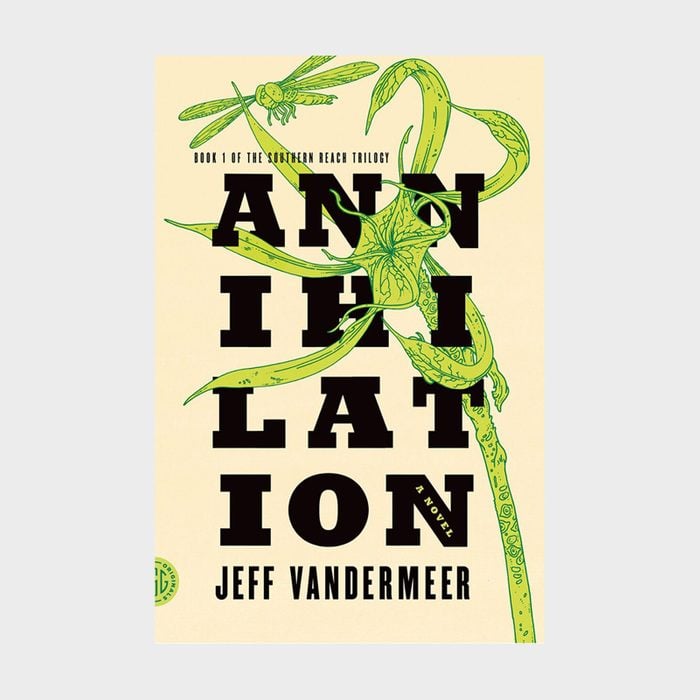
16. Annihilation by Jeff Vandermeer
One of those books you’ll absolutely finish in a single sitting, the first of the Southern Reach trilogy is a master class in tension. A team of four women—a biologist, anthropologist, psychologist and surveyor—are assigned to explore the mysterious, abandoned Area X, where expeditions for the past 30 years have failed due to disappearances, suicides and cancer. As the team slowly loses its members and experiences stranger and stranger encounters, the mystery only deepens. Winner of the 2014 Nebula Award and 2014 Shirley Jackson Award for best novel, Annihilation was adapted into a film directed by Alex Garland and starring Natalie Portman and Oscar Isaac.
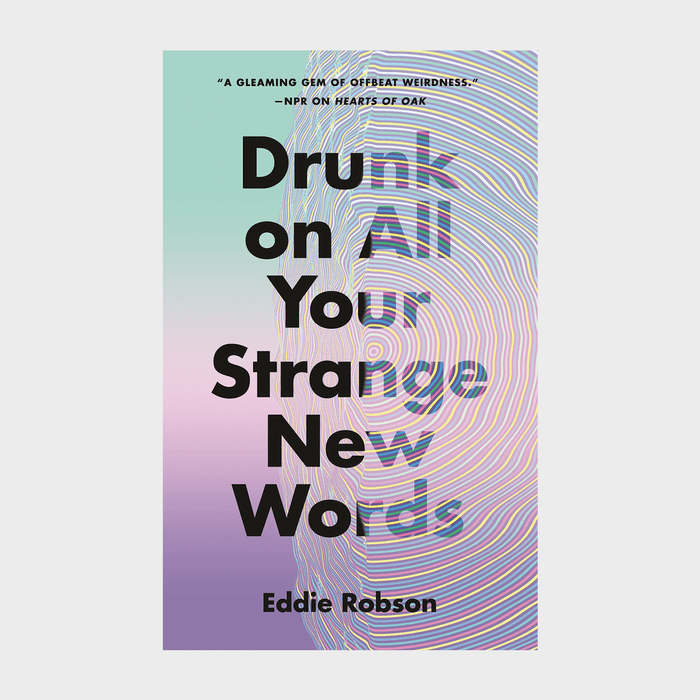
17. Drunk on All Your Strange New Words by Eddie Robson
Set in a post-contact, near-future New York City, Drunk on All Your Strange New Words is a 2022 murder mystery in which aliens walk among us and no one bats an eye. These peaceful aliens communicate telepathically, and human interpreters, such as charming protagonist Lydia, must translate what they’re saying into English. But as the title suggests, the caveat is that these interpreters actually get drunk as a side effect of processing the alien language. When Lydia gets accused of murdering one of the aliens and threatening intergalactic peace, she must solve this whodunit to prove her innocence while keeping her wits about her. Robson’s creative world-building and witty dialogue keep the book fun and fast-paced, a welcome break from some of the heavier themes in the sci-fi genre.
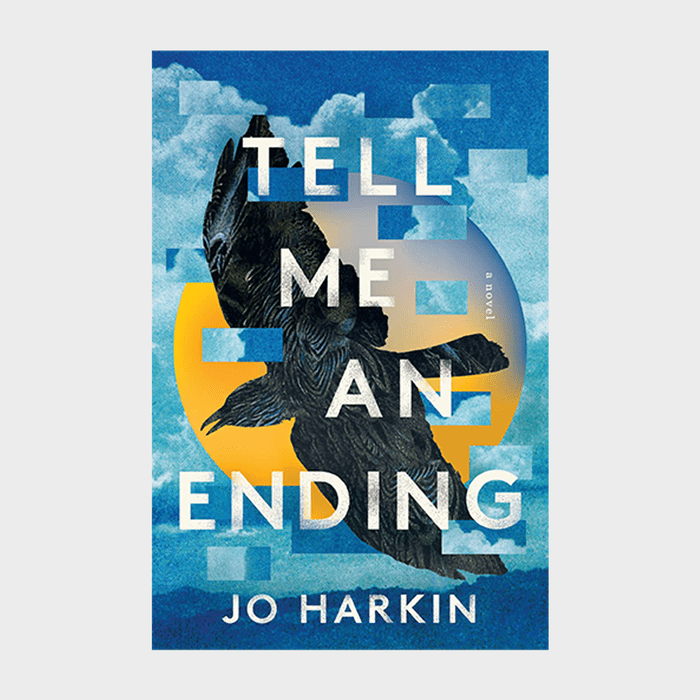
18. Tell Me an Ending by Jo Harkin
If you could delete any specific unwanted memory, which would you choose? Black Mirror meets Eternal Sunshine of the Spotless Mind in Jo Harkin’s 2022 novel, in which four people learn they once partook in this memory-removal process. As Noor, the psychologist at the clinic that deleted the memories, works with these individuals to restore what they lost, readers peek into the windows of their lives and learn what may drive people to purposefully forget. Tell Me an Ending is a fascinating rumination on the power of memory, asking who we are without our memories and what we do to our psyches when we try to erase our traumas instead of confronting them.
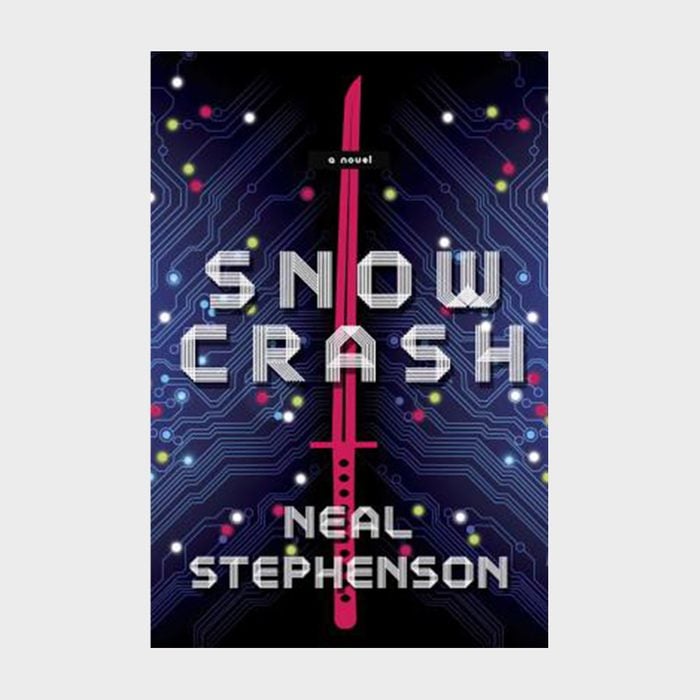
19. Snow Crash by Neal Stephenson
Neal Stephenson is known for complex plots and sci-fi books of great length. (His 2008 book, Anathem, is 937 pages!) At 480 pages, Snow Crash doesn’t ask for quite as large a commitment. Published in 1992, the novel takes on a plethora of topics, from archaeology and anthropology to cryptography and computers (it did, after all, coin the term metaverse). The book is a self-aware take on science fiction, with a hero named Hiro who is both a pizza delivery guy and a virtual warrior prince. Snow Crash landed on Time‘s list of the 100 best English-language novels, and we can see why.
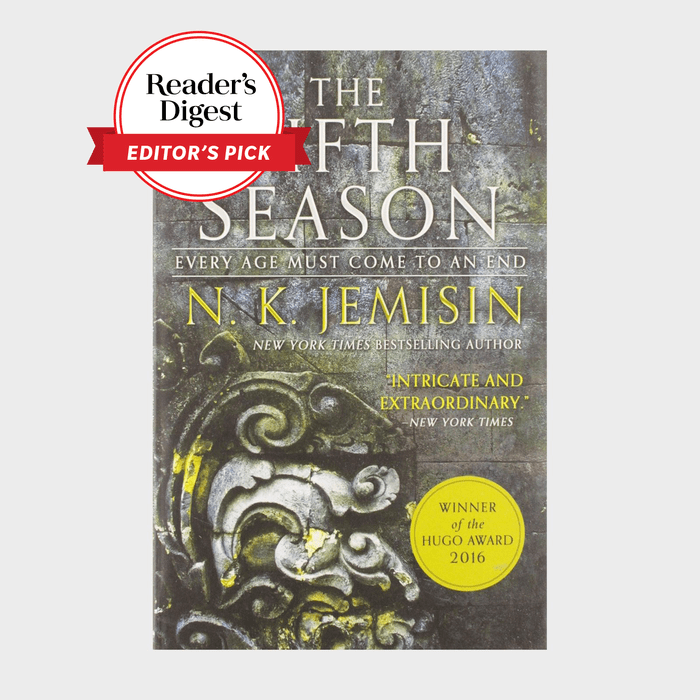
20. The Broken Earth trilogy by N.K. Jemisin
A heavyweight in the science fiction genre, N.K. Jemisin has written a library of stellar sci-fi books. But The Broken Earth trilogy, a sci-fi and fantasy series blend, is truly not to be missed. Beginning with The Fifth Season in 2015 and continuing through The Obelisk Gate and The Stone Sky, the series starts with the end of the world and doesn’t let up for a moment. Though grim, the story of a far future is laced with hope and bursting with imagination. Jemisin masterfully touches on themes of power, identity and hope in dark times. And in an amazing (and history making) feat, she won a Hugo award three years in a row, one for each book in this series.
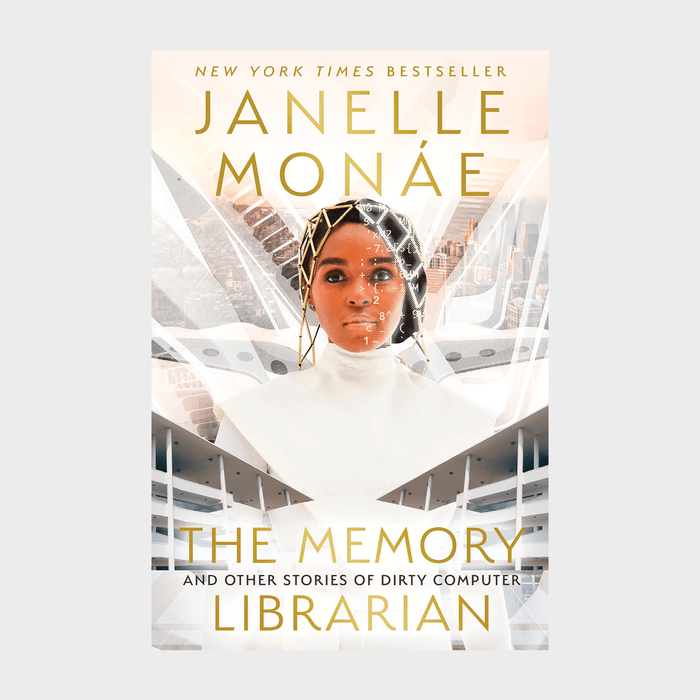
21. The Memory Librarian: And Other Stories of Dirty Computer by Janelle Monáe
From the innovative mind of acclaimed singer-songwriter and actor—and now New York Times bestselling author—Janelle Monáe, The Memory Librarian is an Afrofuturist cyberpunk short story anthology set in the world of her 2018 Grammy-nominated album Dirty Computer and the short film of the same name. We recommend listening to Monáe’s album and watching the short film to immerse yourself in the full experience of her world. These short stories, written in collaboration with Yohanca Delgado, Eve L. Ewing, Alaya Dawn Johnson, Danny Lore and Sheree Renée Thomas, center and celebrate their Black, queer and feminist characters as they break free of a totalitarian society and create their own empowering narratives.
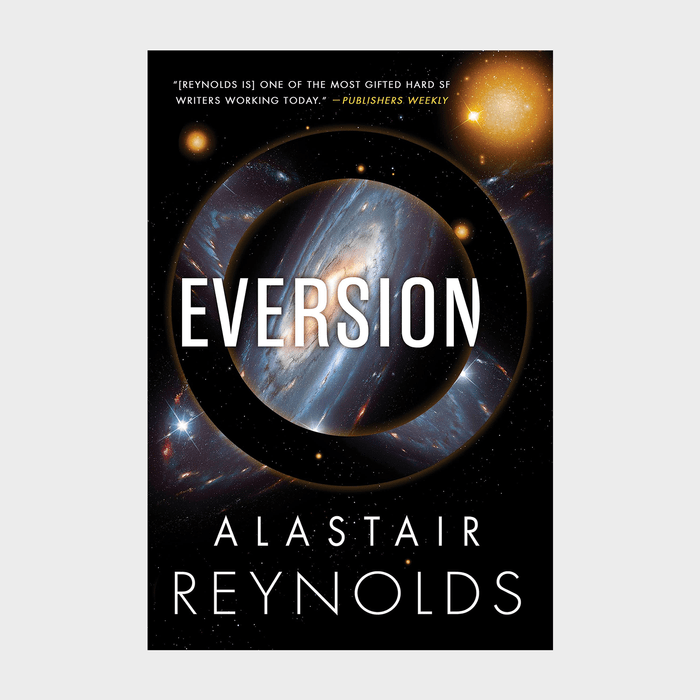
22. Eversion by Alastair Reynolds
Renowned space opera writer Alastair Reynolds (Arthur C. Clarke Award nominee for his Revelation Space series) has a PhD in astrophysics, and it not only makes his hard science fiction plausible but also accurately conveys the many dangers of space. Eversion is an absolutely mind-bending and gorgeously written stand-alone novel in which time seems to fold in on itself. Part historical fiction, part steampunk and part space adventure, the 2022 novel follows Doctor Silas Coade through space and time as he and his crew investigate a mysterious alien artifact. And while it may not be as epic or sprawling as some of his previous writing, it’s arguably more of an emotionally compelling, character-driven page-turner.
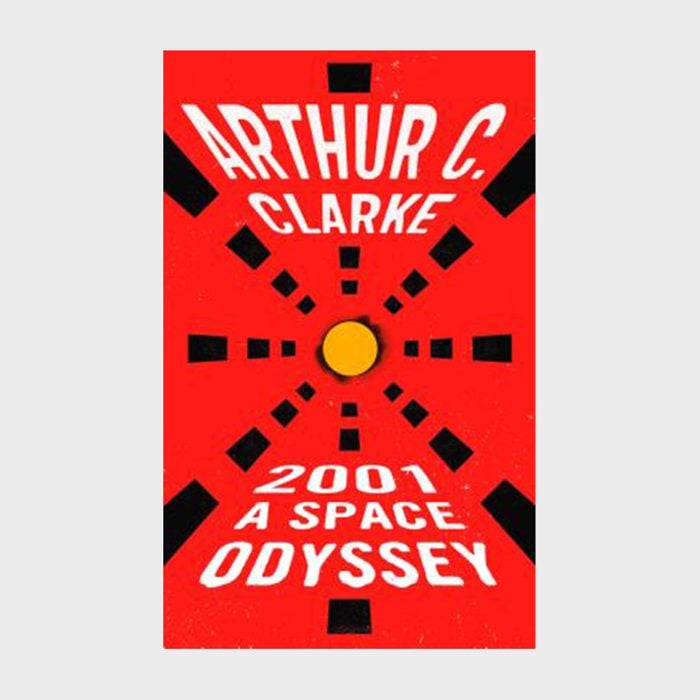
23. Space Odyssey series by Arthur C. Clarke
Most people are familiar with 2001: A Space Odyssey, but you may not know that it’s the first part of a four-book series. Published in 1968, 2001: A Space Odyssey is a mesmerizing trip through the solar system. So iconic that it is nearly synonymous with sci-fi, this story further solidified its place in our minds with the Stanley Kubrick film that was released in tandem. The sweeping novel manages to stay relatable while also tackling big topics, like evolution, the vastness of the universe and technology’s unwieldy dangers. Hal 9000 became arguably the most famous and chilling artificial intelligence character in literature or film.
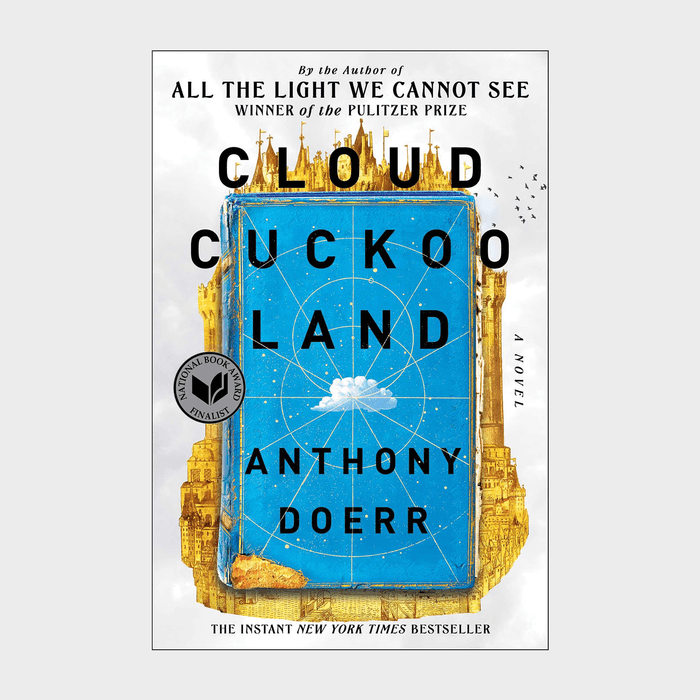
24. Cloud Cuckoo Land by Anthony Doerr
Navigating between 15th-century Constantinople, present-day Idaho and an interstellar ship in the future, 2022’s Cloud Cuckoo Land seems like a random collection of stories at first. But Anthony Doerr (the Pulitzer Prize–winning author of All the Light We Cannot See) manages to connect all his characters’ stories, building layer upon layer of beautiful complexity until you get a testament to the resilience of the human spirit.
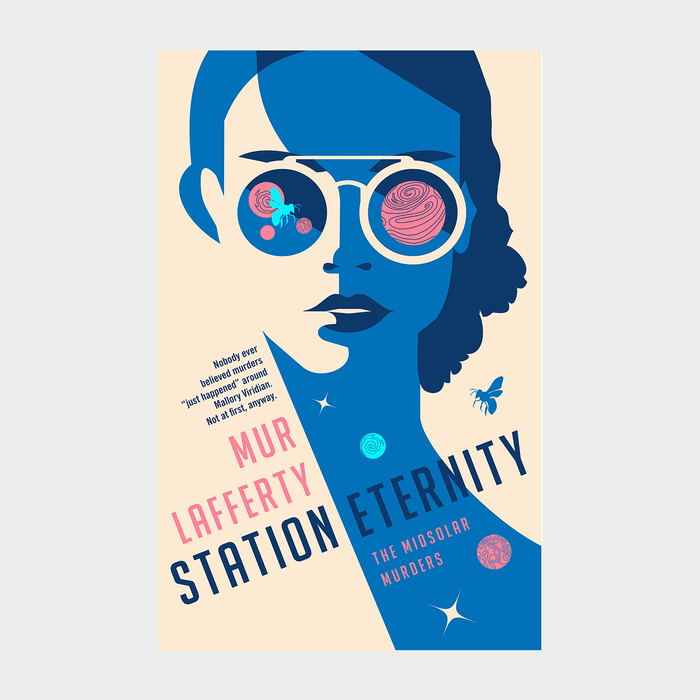
25. Station Eternity by Mur Lafferty
Murder mysteries are always thrilling, keeping you guessing the killer and motive until the very end, but Mallory Viridian, an amateur sleuth who seems to attract murder wherever she goes, is sick of them. In fact, she’s so sick of getting caught up in these murders that she goes to a sentient space station where she’s one of only three humans. As you can guess, a murder mystery unfolds anyway, and it’s up to Mallory to figure it out. Published in 2022, Station Eternity fully leans into the absurdity of its fun plot, and it’s a wild ride from start to finish.
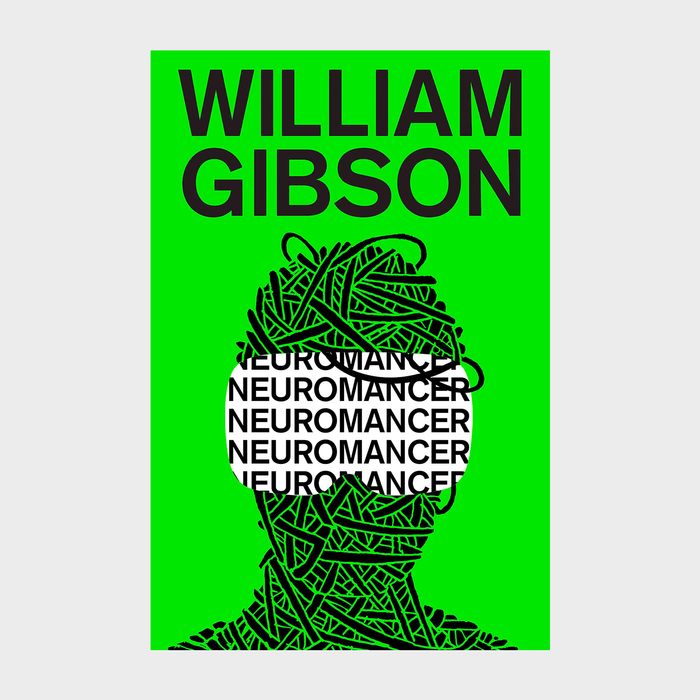
26. Neuromancer by William Gibson
With Netflix’s critically acclaimed series Cyberpunk: Edgerunners, based on the video game, there’s been a renewed interest in the cyberpunk genre. William Gibson’s 1984 novel Neuromancer basically invented the book genre and is widely recognized as one of the best sci-fi books of all time. The first novel ever to win the Hugo, Nebula and Philip K. Dick awards, the book went on to inspire Ghost in the Shell, Cowboy Bebop, The Matrix and so many, many more. The premise? Case, a washed-up hacker in dystopian Chiba City, gets a commission for the job to end all jobs and finds himself drawn into the complex web of cyberspace, as well as biotechnology, artificial intelligence and evil corporations.
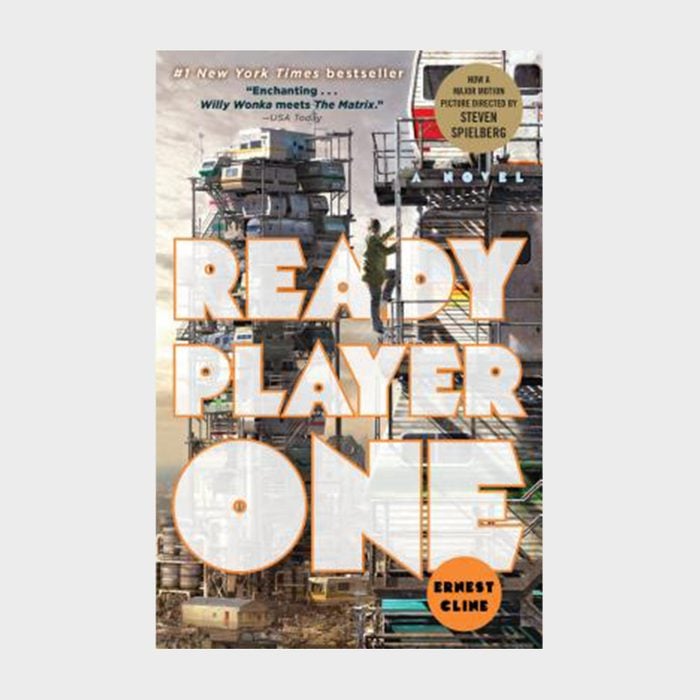
27. Ready Player One series by Ernest Cline
What makes Ready Player One so frightening and enthralling is that it’s set in the very near future, one that seems just on the horizon. In the story, protagonist Wade Watts blurs the lines between the real world and virtual reality—the metaverse, anyone?—as he searches for a hidden fortune that could turn his life around forever. This thrilling bestseller keeps readers on the edge of their seats, wondering if Wade will find the game’s Easter egg before his rivals find him first. If you’re a fan of the first book, which was published in 2011, you’ll fly through the sequel, Ready Player Two. And while it pales in comparison to the books, the 2018 film adaptation, directed by Steven Spielberg, is worth a watch.
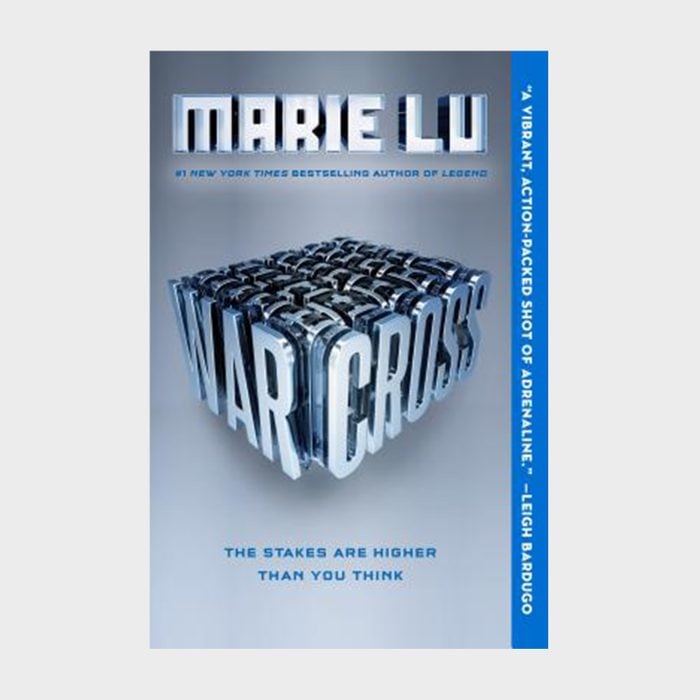
28. Warcross series by Marie Lu
Like Ready Player One, this 2017 sci-fi series by No. 1 New York Times bestselling author Marie Lu centers around a game with real-life consequences. The game is Warcross, an international obsession where money can be made but security is compromised. Our protagonist is Emika Chen, a teen hacker and bounty hunter who is about to be thrust into dangerous circumstances. Fans of game-based sci-fi and the anime/Netflix show Cowboy Bebop will find the world and stakes of Warcross thrilling and irresistible. Like Lu’s Young Elites and Legend series, the Warcross series is a collection of young adult novels that’ll appeal to adult readers who love to be swept up in a great story.
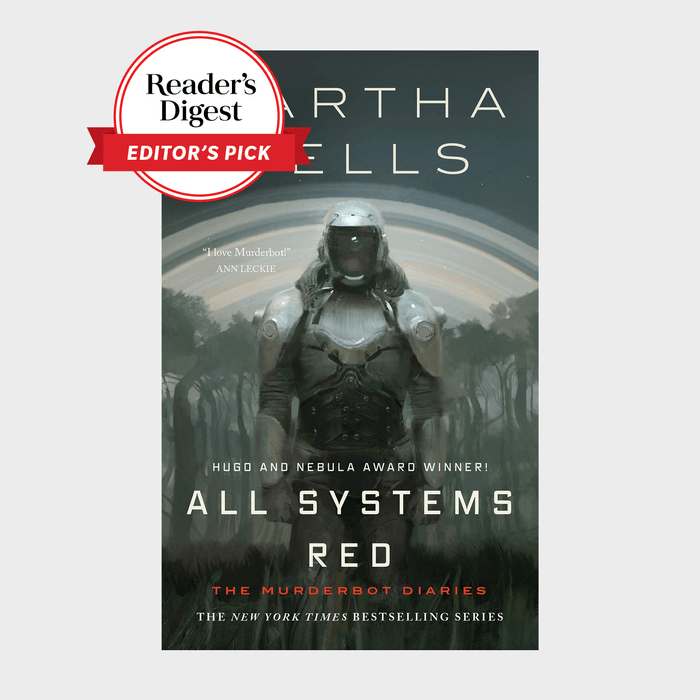
29. All Systems Red by Martha Wells
“I could have become a mass murderer after I hacked my governor module, but then I realized I could access the combined feed of entertainment channels carried on the company satellites,” says Murderbot, the endearingly sarcastic, antisocial cyborg protagonist of Martha Wells’s 2017 novella All Systems Red. In this hilarious book, Murderbot is a security unit on a scientific space expedition. It’s sentient, and it would much rather watch TV than do its job or have to be around humans. It’s no wonder the book won the 2018 Hugo Award for Best Novella, 2018 Nebula Award for Best Novella, 2018 Alex Award and 2018 Locus Award. The epitome of #relatable, Murderbot will definitely have you in stitches.
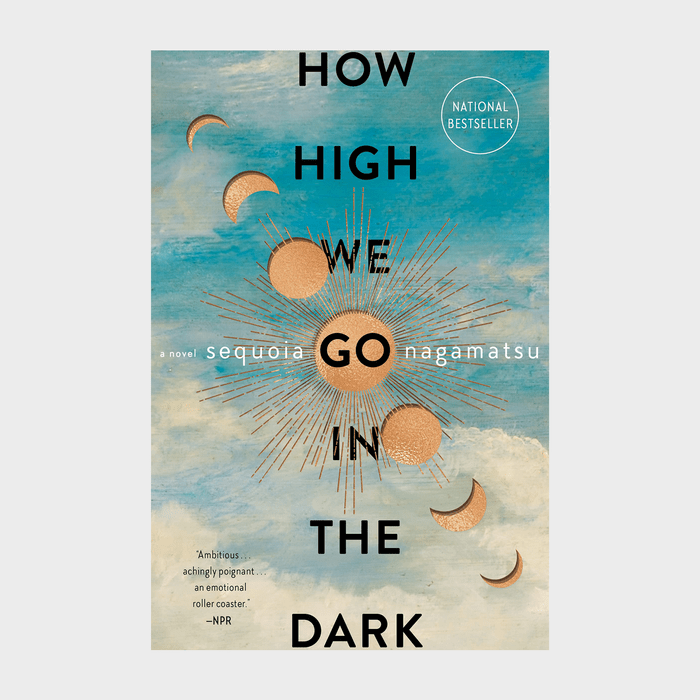
30. How High We Go in the Dark by Sequoia Nagamatsu
Have tissues handy as you read How High We Go in the Dark by Sequoia Nagamatsu, because this book will make you cry. Told through vignettes in an apocalyptic, post-pandemic world, this 2022 novel highlights the tender moments of love and beauty that peek through the sidewalk cracks of an otherwise bleak life: a catastrophic archaeology site in Siberia, an amusement park filled with dying children, funerary skyscrapers. Intimate and compassionate, each of Nagamatsu’s stories pierces through themes of death and grief with hope.
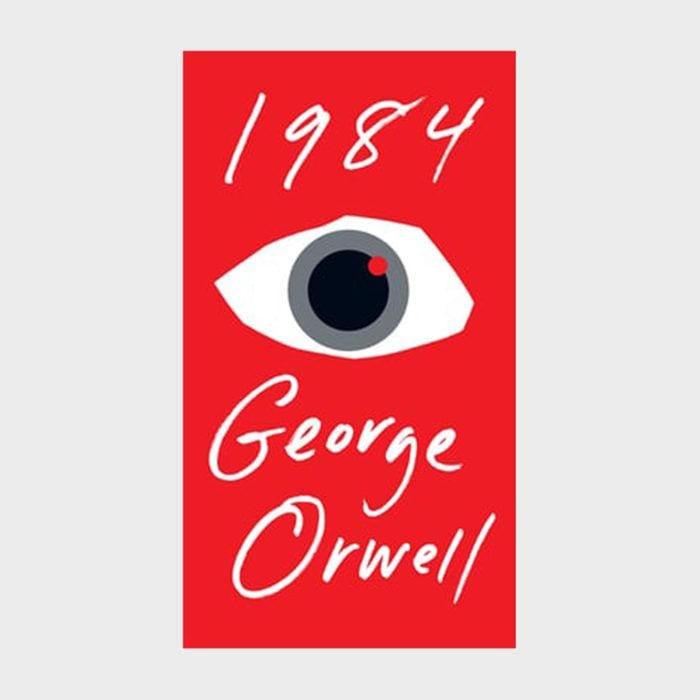
31. 1984 by George Orwell
Written in 1949, George Orwell’s classic 1984 was perhaps his most dystopian novel—and it was also the author’s last. Despite time marching past the titular year, sci-fi fans argue the book is still relevant and one of the best sci-fi books ever written. There’s a chilling familiarity to Orwell’s descriptions of Big Brother, and high school English teachers all over the country enjoy sparking class discussions over parallels between the totalitarian regime in 1984 and political issues of today.
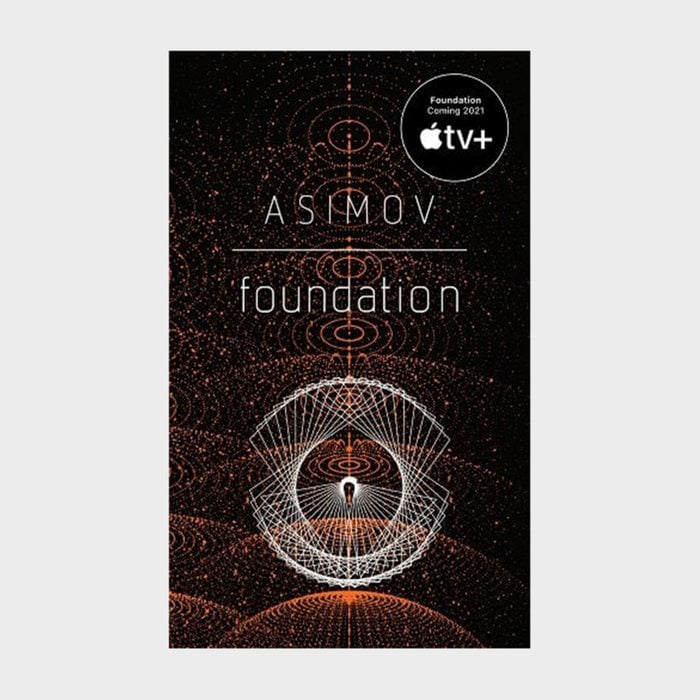
32. The Foundation series by Isaac Asimov
Isaac Asimov’s Foundation series snagged the one and only Best All-Time Series Hugo Award in 1966. Its seven books span 550 years and can be read in order or as stand-alone stories. The first book in the series, Foundation (1951), brings us to the Galactic Empire as it’s falling. Hari Seldon, founder of a science called psychohistory that can predict future societal patterns, sees impending doom. He gathers the brightest thinkers to live on a planet together to create a new future, but can they stop what his psychohistory predicts? If you enjoy the book, catch the immersive Apple TV+ show.
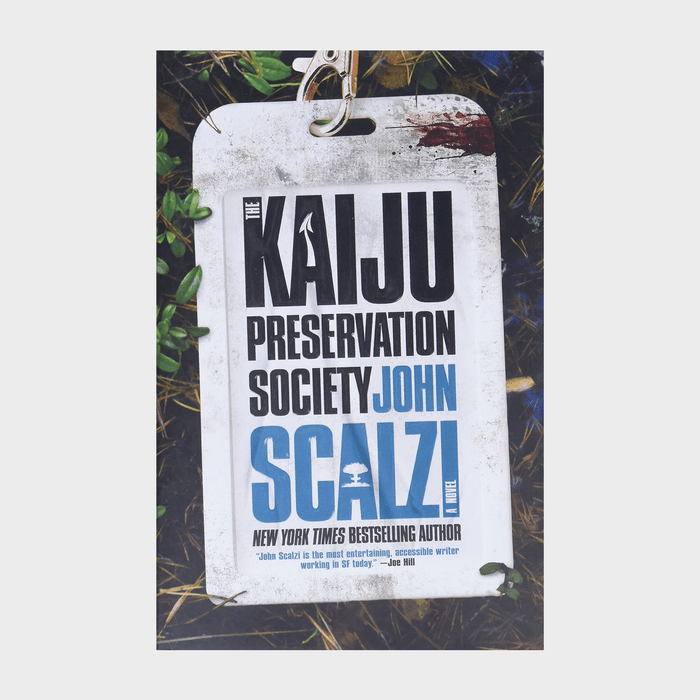
33. The Kaiju Preservation Society by John Scalzi
Bestselling sci-fi writer John Scalzi is back at it again, this time with giant radioactive Godzilla-like dinosaurs—during the COVID-19 pandemic! Nominated for the 2022 Dragon Award for Best Science Fiction Novel, The Kaiju Preservation Society features Jamie, a New York City food delivery driver during lockdown who takes on a field job at an animal rights organization. What he doesn’t expect is to get transported to an alternate dimension with massive creatures called Kaiju, where there are even greater threats to earth than the pandemic itself.
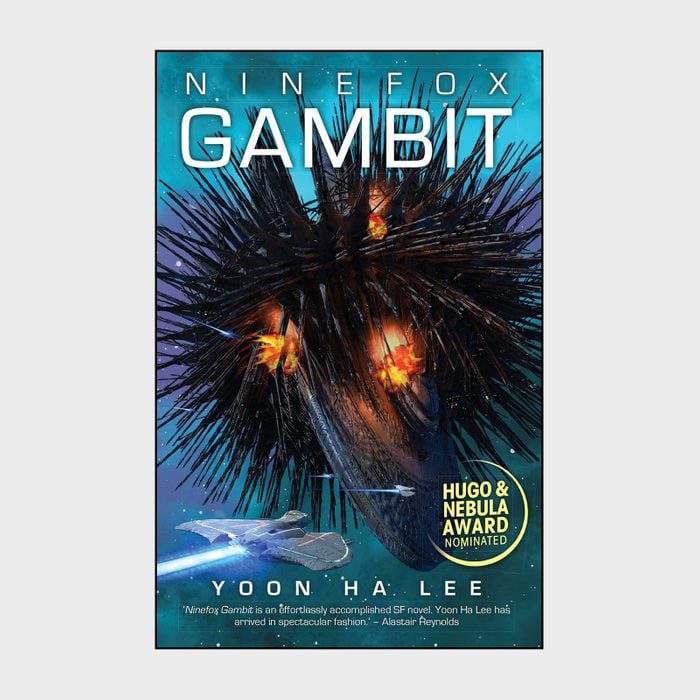
34. The Machineries of Empire trilogy by Yoon Ha Lee
New York Times bestselling author Yoon Ha Lee brings us a trilogy that mixes military sci-fi with space opera. Read the books in order, starting with Ninefox Gambit and following with Raven Stratagem and then Revenant Gun. At the helm of the first story is Captain Kel Cheris, a disgraced leader who must partner with an unpredictable (and undead) general in order to gain redemption. Winner of a Locus Award and nominated for Hugo, Nebula and Arthur C. Clarke awards, Ninefox Gambit will have you hooked on the whole series. Want more of the undead? Take a bite out of one of these vampire books.
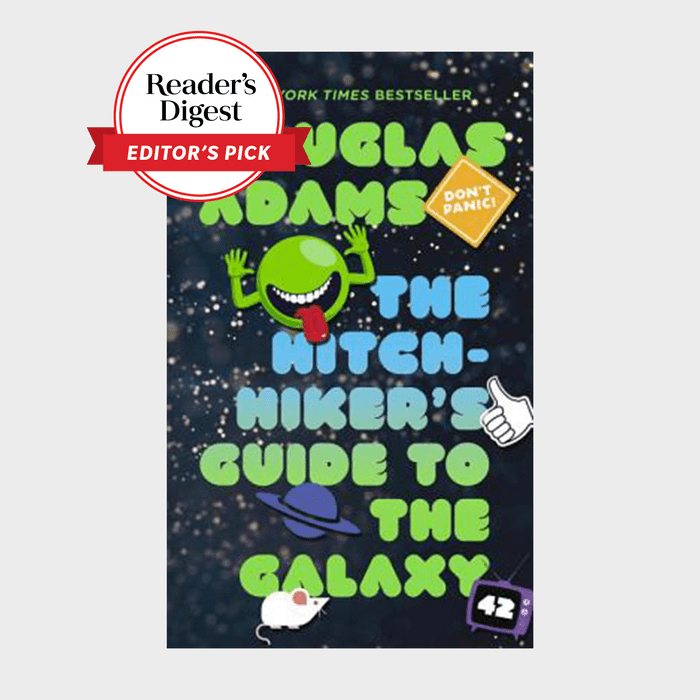
35. The Hitchhiker’s Guide to the Galaxy series by Douglas Adams
No list of best sci-fi books is complete without The Hitchhiker’s Guide to the Galaxy, a 1979 classic that was later made into a film starring Martin Freeman and Mos Def as Arthur Dent and Ford Prefect, the beloved duo of galactic travelers. It’s the book that taught us that time is an illusion, the significance of the number 42 and what defines a learning experience. If you enjoy the first book, there are five others: The Restaurant at the End of the Universe; Life, the Universe and Everything; So Long, and Thanks for All the Fish; Mostly Harmless; and And Another Thing (written by Eoin Colfer).
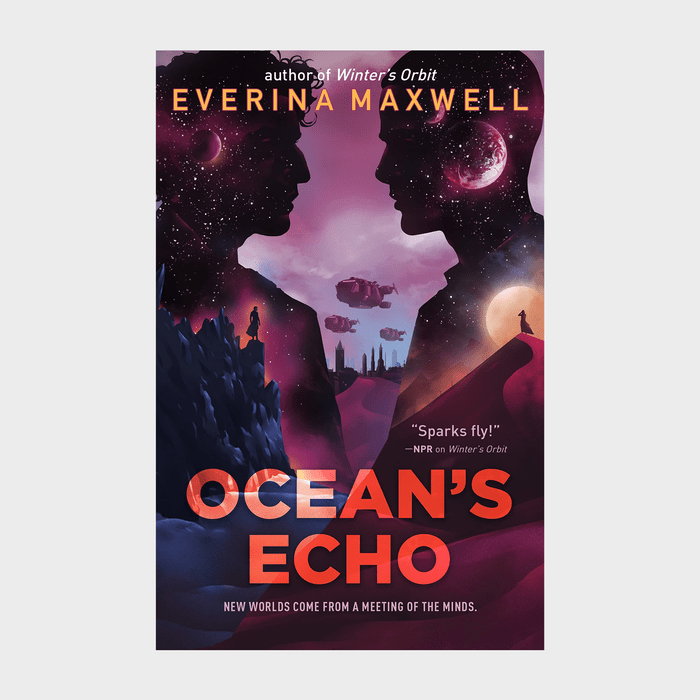
36. Ocean’s Echo by Everina Maxwell
Set in the same world as her debut enemies-to-lovers romance, Winter’s Orbit, Everina Maxwell’s 2022 stand-alone novel, Ocean’s Echo, is the queer military space opera you never knew you needed. Opposites collide and inevitably attract as neuromodified soldiers Tennal, a rebellious socialite who can read minds, and Surit, a dutiful officer who can control them, get bound together and drawn into political intrigue. Come for the gay romance, stay for the ambitious world-building and epic space battles.
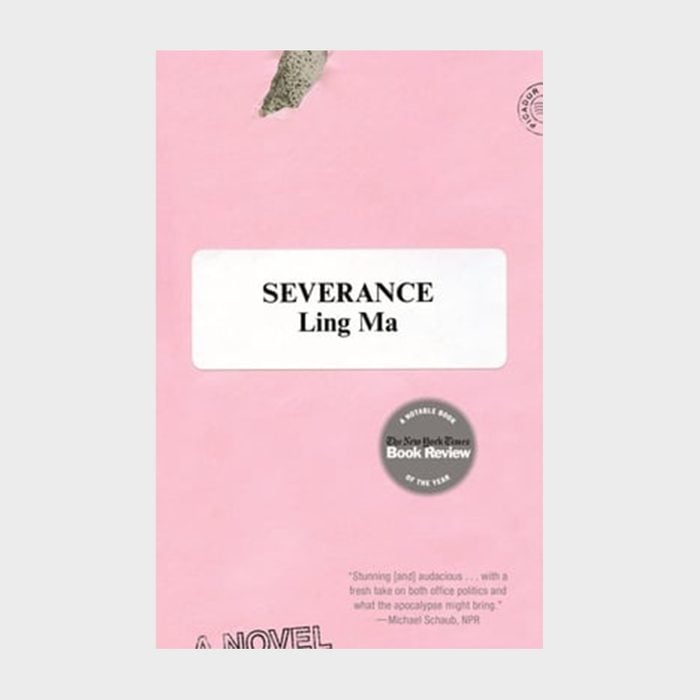
37. Severance by Ling Ma
After living through a pandemic, you might think Ling Ma’s 2018 book about a worldwide epidemic would hit too close to home. But Severance is a post-apocalyptic satire, a humorous and quirky take on our routines and what they can do to us. Candace Chen is a millennial woman so focused on the minutiae of office life that she barely notices when a fever of epic proportions wipes out New York. Her survival (and the future of humanity) depends on what she does next. On more than a dozen lists of the best fiction books of the year and winner of multiple awards, including the Kirkus Prize for Fiction, Severance explores the experience of immigrants in America, challenges capitalist notions and makes us immensely grateful for what we have.
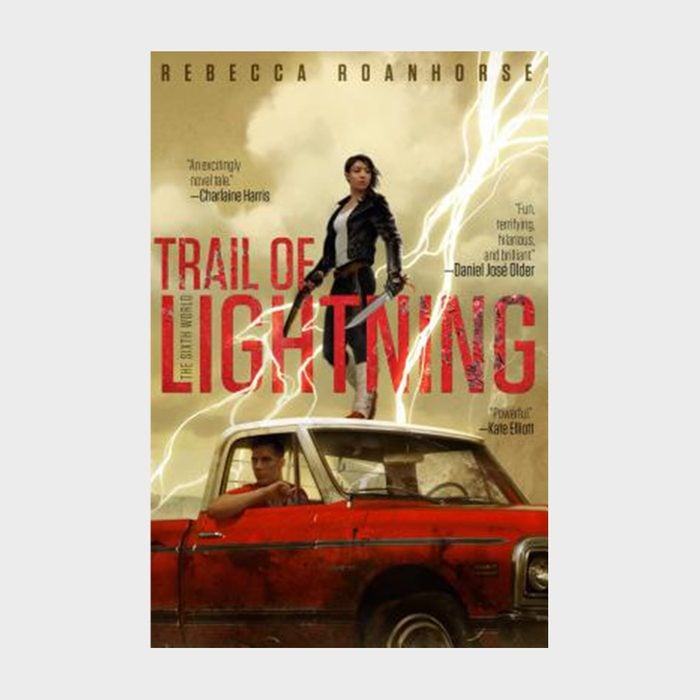
38. The Sixth World series by Rebecca Roanhorse
In the Sixth World series, created by New York Times bestselling author Rebecca Roanhorse, everything below 3,500 feet of elevation is submerged in water after an environmental disaster. In Dinétah, what was once a Navajo reservation, a post-apocalyptic rebirth has opened the door for spirits and monsters from the past to roam. Maggie Hoskie, a monster hunter, is called on to fight and find truth. So far, there are two books set in this world. Start with the award-winning Trail of Lightning (2018), a story that will have you pondering how we treat earth, the limits of technology and our inner demons. Get great books like this each month by signing up for one of these book subscription boxes.
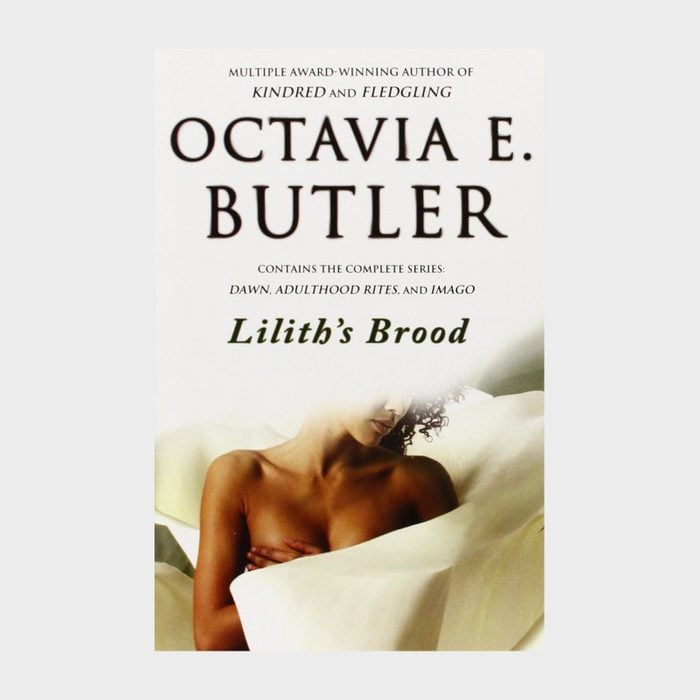
39. Lilith’s Brood by Octavia E. Butler
Lilith’s Brood is a collection of three novels by the unparalleled Octavia E. Butler, who in 1995 was the first sci-fi author to win the MacArthur “genius” grant. Set in a time when humanity and earth have been destroyed, readers awaken with Lilith Iyapo to learn that an alien race called the Oankali is resurrecting the remains of humans. What follows is a merging of species in order for humanity to survive, a hybridization that some humans cannot accept. Themes of social hierarchy and what it means to be human are explored in these three groundbreaking books: Dawn (1987), Adulthood Rites (1988) and Imago (1989).
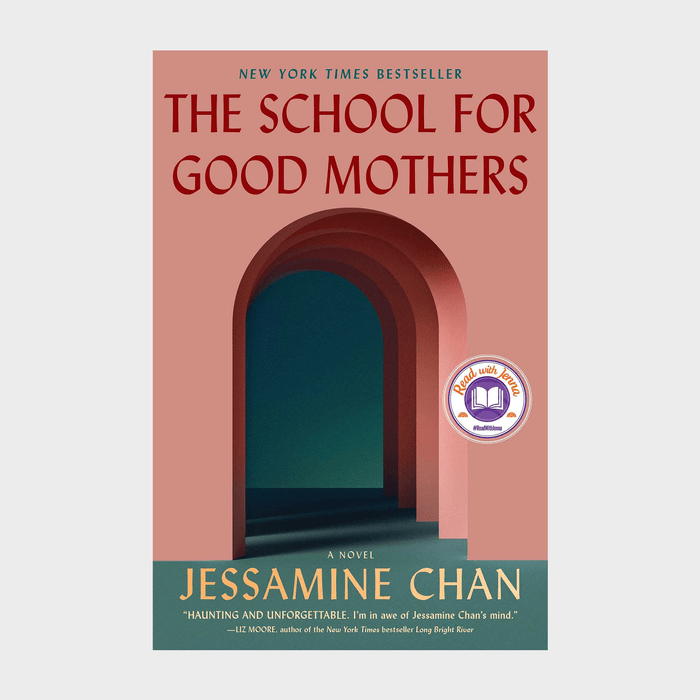
40. The School for Good Mothers by Jessamine Chan
In a social media–obsessed world in which everyone is ready to whip out their smartphone, record and judge, the pressure to be a perfect parent increases tenfold. In her 2022 New York Times bestseller, The School for Good Mothers, Jessamine Chan plays on that anxiety. Chan has crafted a dystopian society in which mothers are not only scrutinized but can also be sentenced to governmental reform programs that help them become “good” parents. After making one bad decision, single mother Frida Liu loses custody of her daughter and has to spend a year in the school to win her back. What results is a sobering but thought-provoking social commentary on motherhood, misogyny and racial inequality. You’ll want to follow this one up with some other mother-daughter books.
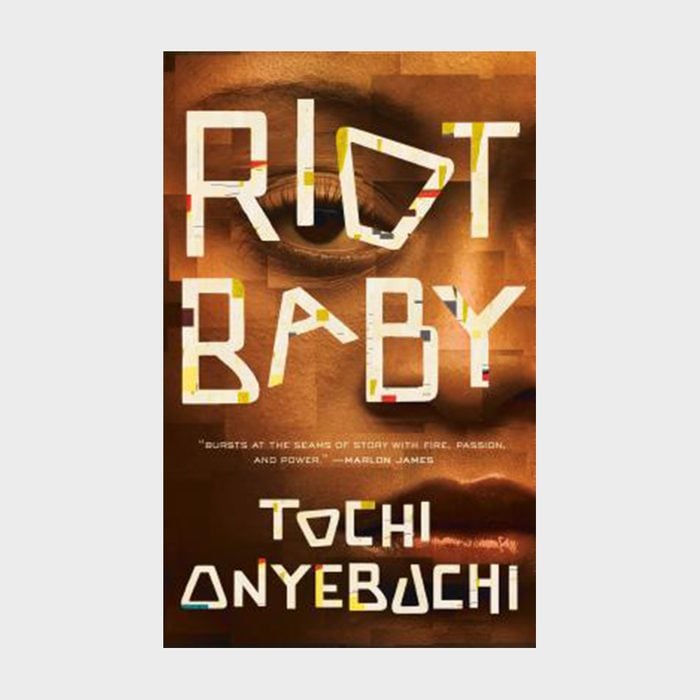
41. Riot Baby by Tochi Onyebuchi
Winner of the 2020 New England Book Award for Fiction and a finalist for Hugo, Nebula, Locus and World Fantasy awards, Riot Baby is the adult fiction debut of popular YA novelist Tochi Onyebuchi. In it, we follow siblings Ella and Kev, born during the riots following Rodney King’s beating and the acquittal of the offending officers. These siblings grow up with a desire to protect each other: Ella wants to protect Kev as he grows into a young Black man in America. Kev wants to protect Ella from the mysterious and growing powers she has. In vivid scenes and searing moments that jump through time, we follow this family story that grapples with systemic racism, loss of innocence and the impossibly hard choices that come with having powers no one else does. At only 176 pages, it’s a short book, but one that will leave you breathless.
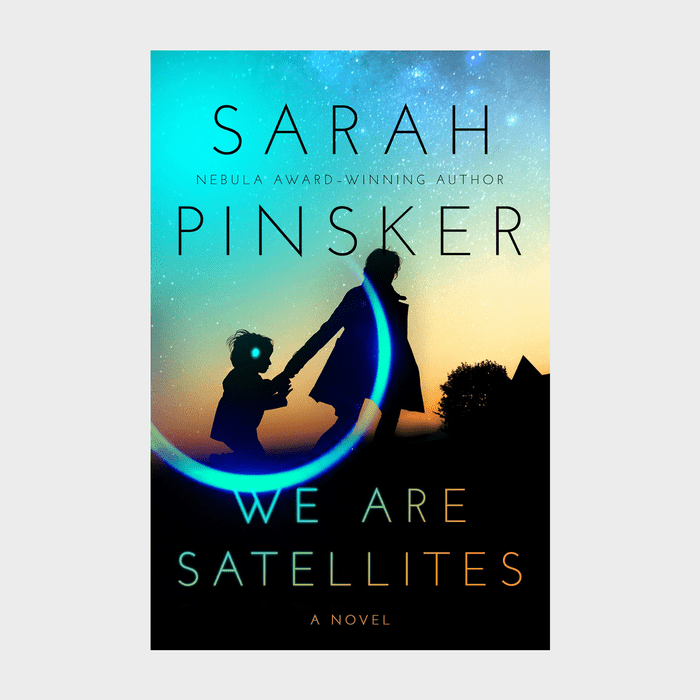
42. We Are Satellites by Sarah Pinsker
When it comes to technological advancement, there are three types of people: those who jump at the chance to try the latest, those who reluctantly follow when they feel obligated to adapt and those who wholly reject it altogether. Sarah Pinsker’s We Are Satellites explores the human cost of a brain-enhancing implant from those three perspectives, as well as a fascinating fourth one we don’t often consider. A moving family drama at heart, a sci-fi book like this feels even closer to reality these days, not so much posing a “what if” but an inevitable “when.”
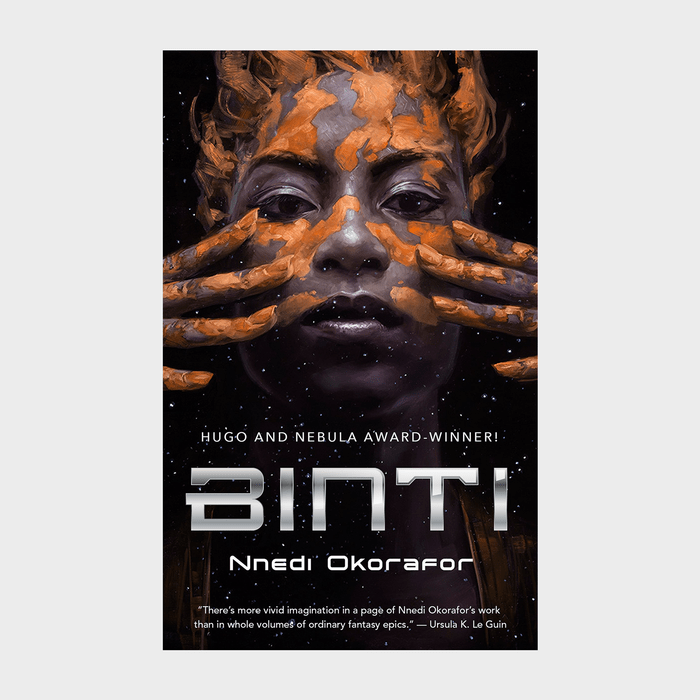
43. Binti by Nnedi Okorafor
The first of the Binti series, Nnedi Okorafor’s 2015 Afrofuturist space novella won multiple prominent literary awards, including the 2016 Hugo Award and the 2016 Nebula Award for Best Novella, and it’s reportedly being adapted into a Hulu television series. The eponymous protagonist is the first of her people on earth to get accepted into a prestigious intergalactic university, and that’s a big deal. “We Himba don’t travel,” she tells readers. “We stay put. Our ancestral land is life; move away from it and you diminish. We even cover our bodies with it. … Here, in the launch port … I was an outsider; I was outside.” While in transit, Binti gets caught in an inter-species war, and she must rely on her courage and intelligence, as well as her people’s ancient practices, to survive.
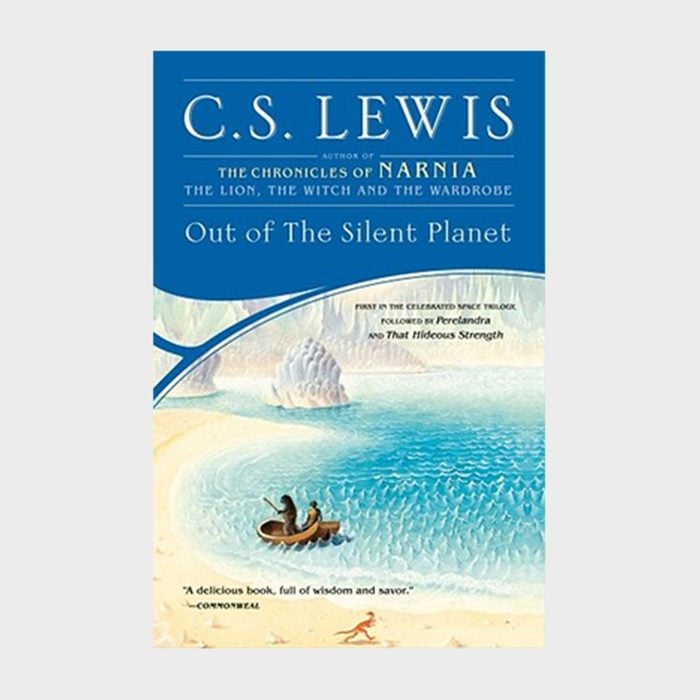
44. Space Trilogy by C.S. Lewis
C.S. Lewis is best known for The Chronicles of Narnia, a series of children’s books in the fantasy genre. But his sci-fi work has also been widely read and celebrated. Out of the Silent Planet (1938) marks the first chapter in the author’s Space Trilogy, followed by Perelandra (1943) and That Hideous Strength (1945). In this interplanetary tale of mythological proportions, we follow Dr. Ransom as he explores new worlds. Lewis was more a scholar of theology than science, making some of the scientific possibilities in his work questionable but bringing a depth of thought and meaning that can be rare in the genre.
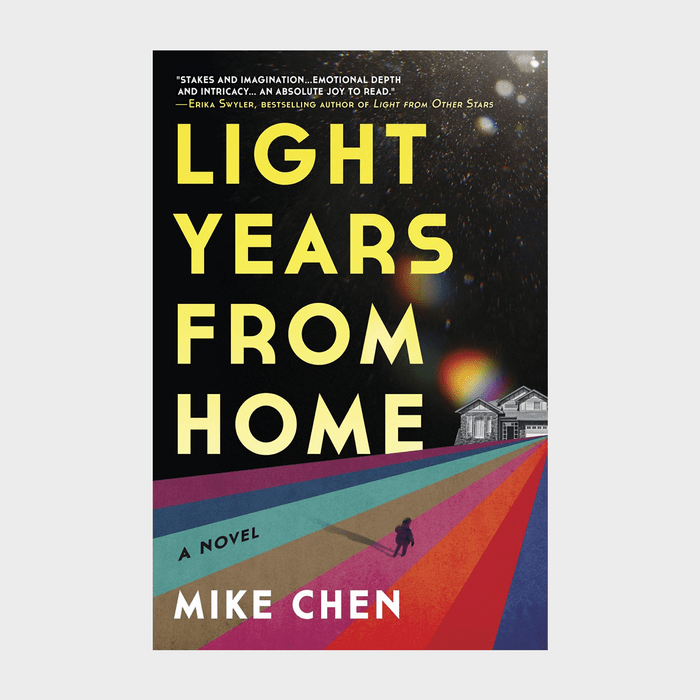
45. Light Years from Home by Mike Chen
Mike Chen’s 2022 novel, Light Years from Home, is less about an epic impending intergalactic war—although there’s some of that too—and more about the quiet family drama that ensues when a father and son disappear and then return claiming they were abducted by aliens. Intimate and at times heartbreaking, the character-driven story follows the perspectives of Jakob, who believes the fate of the galaxy rests on his shoulders, and his sisters, Kass and Evie, who cannot agree on whether he’s telling the truth or mentally ill. Don’t expect too much science in this particular sci-fi—it’s light on that. But it does pose the central question that many of the best sci-fi books ask: What would you do?
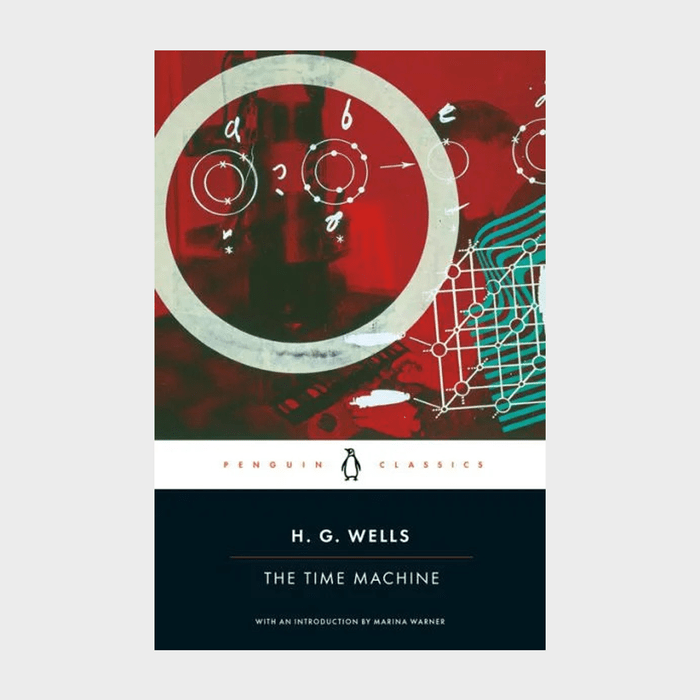
46. The Time Machine by H.G. Wells
A pioneer of science fiction writing, H.G. Wells wrote sci-fi classics like War of the Worlds and our favorite, The Time Machine. Both were adapted into films, and both have withstood the test of time. The Time Machine was written in 1895 and includes several of the best sci-fi book themes, like out-of-control technology, a dystopian future and post-apocalyptic human conflict. If this appeals to you, pair your reading with one of these time travel movies that will make you question everything.
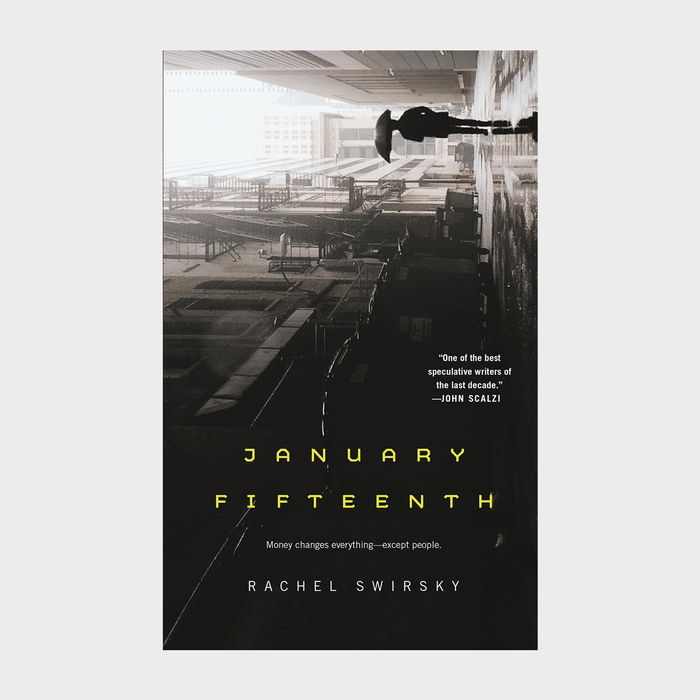
47. January Fifteenth by Rachel Swirsky
Universal basic income is a hot topic these days, with the argument that all citizens should have the basic right to a livable income. In Nebula Award–winning author Rachel Swirsky’s 2022 novel January Fifteenth, we see this interesting “what if” scenario play out: All Americans get paid on the same day. The book explores the perspectives of different women from different socioeconomic backgrounds—young and old, rich or poor—and offers insight into this alternate world.
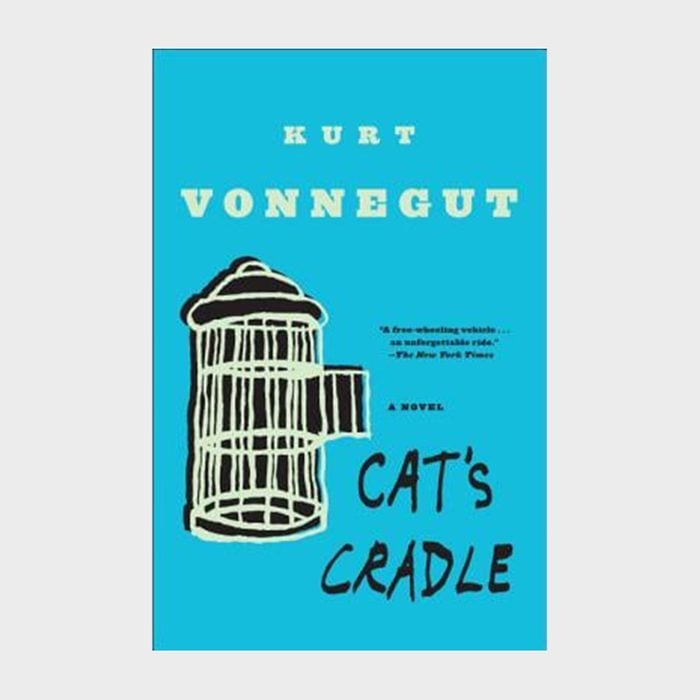
48. Cat’s Cradle by Kurt Vonnegut
Science fiction fans are divided on whether or not Kurt Vonnegut’s lauded 1963 book fits neatly within the genre, but many critics agree that this is his best work. The post-apocalyptic world of Cat’s Cradle focuses on the decidedly sci-fi conflict of technology and chemical warfare. It’s also darkly humorous and at times absurd, following a first-person narrator who sets out to write about one of the creators of the atomic bomb and ends up interviewing a host of strange characters. The way it tackles themes of not only science but also religion makes it a good pick for fans of satire and cultural criticism.
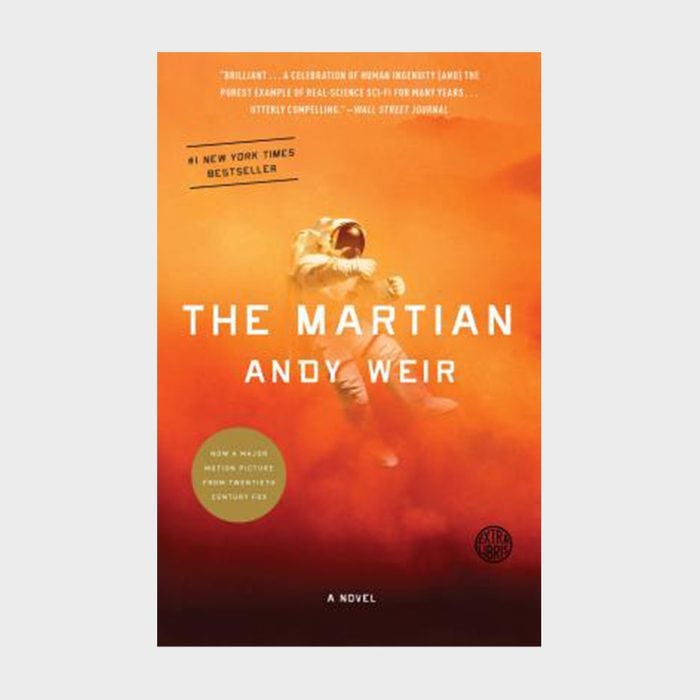
49. The Martian by Andy Weir
This wildly popular 2011 novel was adapted into a movie starring Matt Damon in 2015. Even if you’ve already seen the film, the book is worth a read. Much of its humor and voice come through the journal entries of our protagonist, left for dead on Mars with no companions and few resources. Through ingenuity, hope and sheer will to survive, he must figure out how to be the first human living on Mars. Themes of isolation and resilience are strong, which sounds sobering, but The Martian manages to also be riveting and funny. For anyone interested in space, science and a high-stakes human journey, this book won’t disappoint.
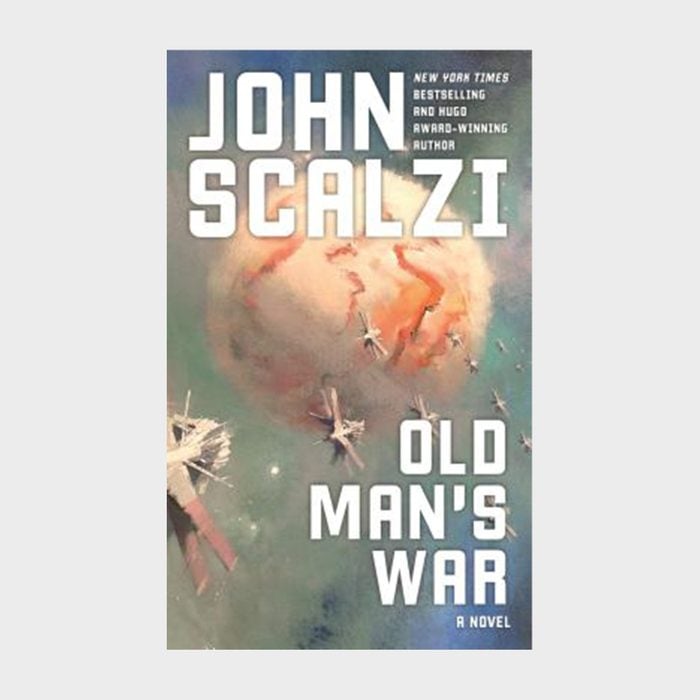
50. Old Man’s War series by John Scalzi
For fans of military sci-fi, there is no greater series than this six-book collection, which starts with Old Man’s War, published in 2005. The books take place in a universe in which habitable planets are scarce and aliens battle one another for a place to live. We follow 75-year-old John Perry, who has just joined the army and has no idea what’s in store for him. Finalist for a Hugo Award and a highly rated book on Goodreads (it has nearly 180,000 ratings and 4.23 stars), Old Man’s War will give you both high-stakes battles and tender moments as Perry reflects on his late wife.
Additional reporting by Tria Wen.
